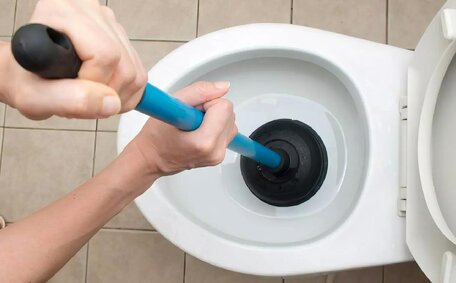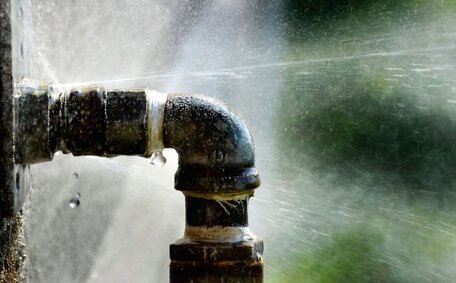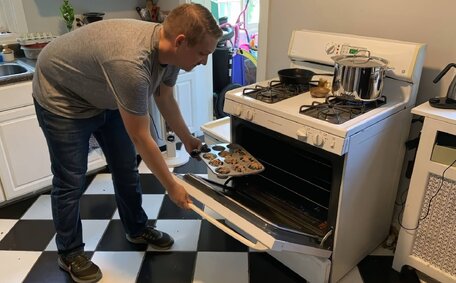Overview of Natural Gas and How It Works
Natural gas is a primary energy source throughout Brighton-Le-Sands and Sydney, prevalent in both residential and commercial settings. Primarily composed of methane, natural gas produces fewer air pollutants when burned in efficient systems and is extracted from dedicated wells or alongside oil drilling. After extraction, natural gas undergoes processing to eliminate impurities, with non-toxic mercaptan infused for scent-based leak detection.
Natural gas is preferred for residential and commercial applications, including cooking, heating, and powering appliances like heaters, stoves, and furnaces. Burnt in modern systems, natural gas emits fewer pollutants than oil and coal, making it a cleaner energy option.
Additionally, natural gas powers generators and industrial processes. The combustion of natural gas releases carbon dioxide, water vapour, nitrogen dioxide, and minimal particulate matter, alongside heat.
While pure natural gas is lighter than air, the consumer-supplied version may be slightly heavier due to the mercaptan added. A natural gas leak outdoors should rise and dissipate, but indoors it can accumulate, posing a risk of explosion or poisoning.
Proper Installation and Maintenance of Gas Pipes and Appliances
Correct installation of gas pipes and appliances is essential for safety and efficiency. Prior to excavation, all gasfitting should conform to Australian Standard AS/NZS 5601.1 and be performed by a licensed gasfitter. Key elements include:
- Ensuring adequate ventilation and clearance zones around appliances
- Checking for gas leaks with soapy water after installation
- Sizing gas lines appropriately for the BTU demand
- Installing safety valves and fittings like flashback arrestors
Regular maintenance and 'Dial Before You Dig’ checks are vital for the safety of gas systems and before any excavation. Your home should be serviced by a licensed gasfitter:
- Inspect pipes, fittings and appliances annually
- Clean or replace blocked appliance vents
- Check and adjust the pilot light gas flame as needed
- Test using leak detection fluid to find gas leaks around joins
- Verify correct appliance combustion using flue gas analysis
Well-maintained natural gas systems are crucial for safety, efficiency, and reducing climate change impacts in Brighton-Le-Sands.
Detecting Gas Leaks and Assessing Safety Risks
It is crucial to know the signs of a potential gas leak and contact your utility provider promptly, as natural gas can create an explosive hazard if concentrations reach around 5%.
The addition of mercaptan gives natural gas a distinctive rotten-egg smell that signals a leak and potential danger. A hissing noise near gas appliances or pipes can also indicate a leak. Dead vegetation, condensation on pipes, or frequently extinguished pilot lights are additional leak indicators.
Suspecting a gas leak, immediately evacuate and call your gas utility’s emergency line. Refrain from using electrical devices or lights to prevent igniting the gas.
Turn off the gas at the valve meters or appliance, but leave the main gas line to professionals.
Increase ventilation by opening doors and windows.
Do not re-enter until emergency crews confirm it is safe to do so. Do not re-enter until emergency crews confirm it is safe to do so. At very high concentrations, gas poisoning leading to unconsciousness or even death can occur rapidly, signifying serious health risks.
Adopting energy safe practices, prioritize prompt attention by qualified personnel for any gas leaks. Annual inspections by a licenced gasfitter can help detect gas faults and assess where a leak can be remedied before it becomes dangerous. Installation of smart home gas detectors connected to a monitored alarm system also improves safety.
By understanding natural gas warning signs and responding accordingly, you can effectively manage leak risks.
Preventing Carbon Monoxide Poisoning
Elevated levels carbon monoxide (CO) poisoning poses a serious risk when gas appliances malfunction or ventilation is inadequate. CO is an odourless, colourless gas that can build up when unburned natural gas does not combust fully when released. At high levels, it can lead to dire health effects, which have been linked to lethal consequences.
Prevent CO poisoning by installing certified CO alarms on each floor, in accordance with Australian Standard AS/NZS 5033. Test them monthly and replace as per the manufacturer’s instructions. Make sure all gas appliances and your meter have yearly inspections and any issues are promptly fixed by a licenced professional.
Ensure high indoor air quality by keeping vents and flues clear for adequate fresh air circulation. Never block inlets that release gas into air, supplying appliances. Briefly open windows while using gas for cooking or heating to ensure proper ventilation. Installing exhaust fans in bathrooms, kitchens, and laundries can minimize the need for venting natural gas outdoors.
On this page been informed of the symptoms of CO poisoning – headaches, dizziness, nausea and confusion. If an alarm sounds, ventilate the property and turn off gas appliances. Every home should have a carbon monoxide action plan.
If anyone displays symptoms, call 000 and provide immediate first aid.
By taking proactive safety measures and following guidance from experts and the gas association at Chan School Public Health, the system your home faces with CO can be effectively addressed. Contact a qualified gasfitter to fully assess your gas appliance safety and ventilation needs.
When to Call a Professional
When using natural gas, it’s vital to immediately seek a qualified professional in these scenarios:
- If you still smell gas or suspect any kind of leak
- If appliances are malfunctioning, backfiring or producing carbon monoxide
- For installation, repairs or any gas line work
- To service or inspect gas appliances and flues yearly
- When renovating rooms containing gas equipment
- If you experience headaches, nausea or dizziness indicative of CO poisoning
Never hesitate to call the emergency gas line if you sense danger. Licensed technicians are adept at thoroughly assessing risks and safely resolving issues. They remain up-to-date on the latest regulations and comply with all standards.
For expert natural gas installations, maintenance, and repairs in Brighton-Le-Sands, reach out to the licensed professionals at Brighton-Le-Sands Plumbing on 1300 349 338 or [email protected]. Our fully qualified gasfitters offer reliable services to ensure your safety.
Natural Gas Safety Tips
Here are essential safety tips for using natural gas in your Brighton-Le-Sands home or business:
- Never dismiss the smell of natural decay, as it signifies a gas presence and a potential safety threat. Evacuate immediately and contact your utility emergency line.
- Ensure all gas distribution appliances and your gas meter are installed and serviced annually by a licenced professional.
- Avoid using or storing flammable items like paints or solvents near gas meters or appliances.
- Engage the shutoff valve to turn off the gas if appliances will be unused for extended periods.
- Consider installing carbon monoxide detectors for improved safety.
- Learn how to manually operate the gas off valve to cut off gas at the mains and educate everyone in your home.
- Keep the emergency phone number for your gas utility handy.
- Check appliance exhaust vents outdoors after use to verify proper functioning.
- Always refer gasfitting or leak issues to qualified technicians, never attempt DIY repairs.
Following basic precautions, as highlighted in our informative video, greatly enhances the safe use of added natural gas for your home or business. Contact the specialists at Brighton-Le-Sands Plumbing on 1300 349 338 for professional installation and maintenance services.
Frequently Asked Questions
Is natural gas safe to use in my home?
Natural gas is typically safe when managed correctly.
Ensure, in line with PSE healthy protocol, all your natural gas appliances and lines in your Brighton-Le-Sands home are installed to your state’s Australian standards by qualified technicians. Follow safety precautions like installing carbon monoxide detectors, know where your gas metre is located, and teaching all household members how to recognise gas leaks.
What should I do if I smell gas in my home?
Upon detecting a 'rotten egg’ odour of gas, immediately evacuate everyone from the premises. Avoid turning any electrical devices on or off and keep clear of using phones or anything that may spark. Do not re-enter until emergency crews have assessed the property and resolved the issue.
Call your gas utility emergency number to report the leak.
How can I prevent carbon monoxide poisoning from my gas appliances?
Mount certified carbon monoxide alarms on each level of your home as specified by Australian Standard AS/NZS 5033. Have your gas appliances serviced by a professional annually to check for malfunctions that increase CO risks. Ensure rooms with gas equipment have adequate fresh air circulation and ventilation.






